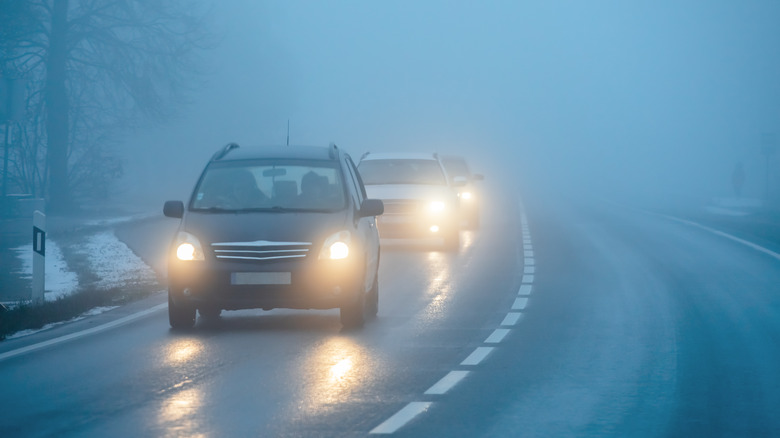Why Some Experts Say Permanent Daylight Saving Time Could Be Bad For Your Health
If you've ever wondered what the purpose of daylight savings time is, you're not alone. Daylight savings time begins at 2 a.m. local time on the second Sunday in March and ends at 2 a.m. local time on the first Sunday of November. The time shift is intended to capitalize on the natural shifts that occur between longer and shorter days and prolong sunlight exposure in the Northern hemisphere (per National Geographic).
After passing in the Senate, the Sunshine Protection Act is now making its way towards the House to determine whether or not the U.S. will eliminate biannual clock changes in favor of permanent daylight savings time (via NPR). However, health experts caution that making this permanent shift may be detrimental to our health.
Medical director of the Baystate Regional Sleep Medicine Program Dr. Karin Johnson told NPR that if a permanent clock change were to be made, it would be more beneficial to stick with standard time, stating, "there [are] two ways to end clock change. One is to go to permanent daylight saving time, and one goes to permanent standard time. And so the scientific and medical community really feel it's very important for us to go to permanent standard time, which is much more aligned with the sun in the sky and so better for our overall health and well-being."
How permanent daylight savings time may affect your health
Dr. Johnson further explains to NPR that even in the midst of daylight savings time, our hormones and our internal body clocks stay loyal to the sun's positioning during standard time, resulting in one to two hours of misalignment in different regions across the country. As a result, our sleep schedule is thrown off, increasing our risk for certain health conditions such as stroke, heart attack, and obesity.
Not only that, but abiding by daylight savings time year-round would also prolong the amount of time spent in the dark during the morning hours. For example, Dr. Seema Khosla, medical director of the North Dakota Center for Sleep in Fargo, tells the Los Angeles Times that this shift would delay the sunrise for citizens of North Dakota until after 9 a.m. during late December. Such a delay could increase the risk for car accidents, as evidenced by a brief trial of year-round daylight savings time conducted in 1974 in which eight children died from being hit by drivers in early morning darkness.
For this reason, health experts feel it's important for government officials to be aware of the potential dangers that passing the Sunlight Protection Act could impose on public health.


